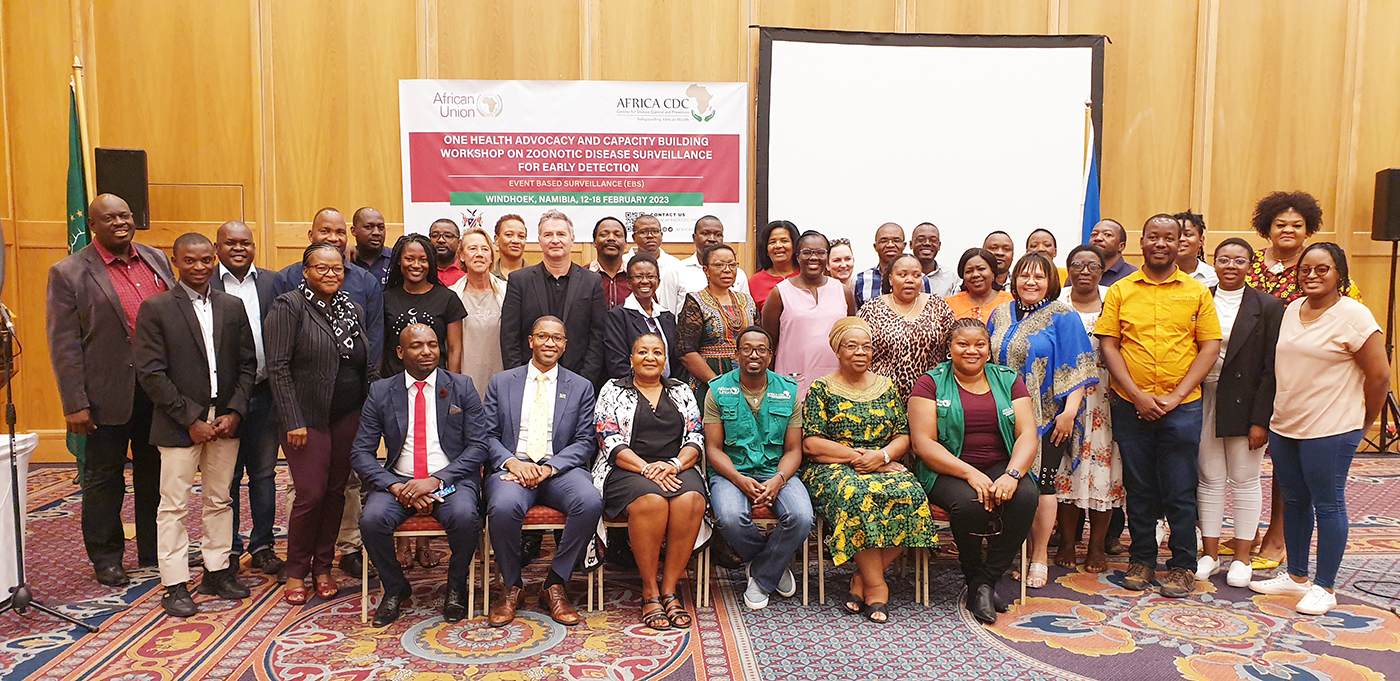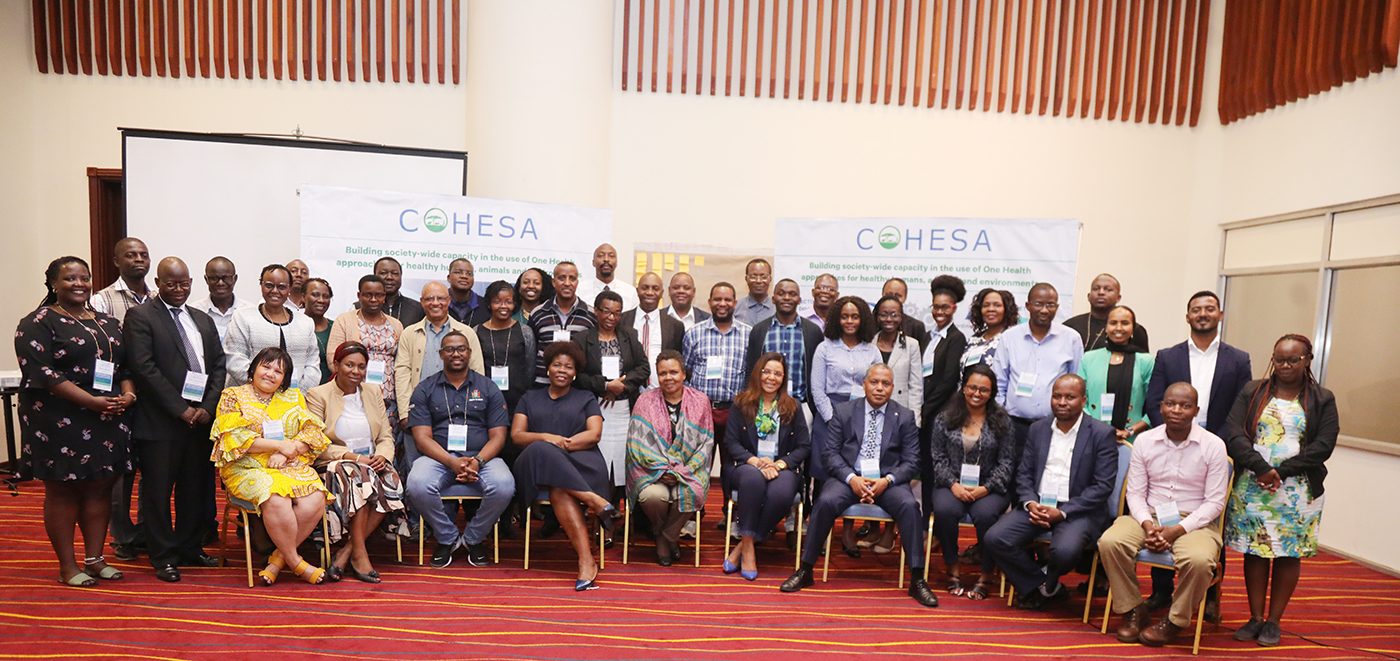The unprecedented, interconnected worldwide threats to the human-animal-environmental health interface continue to have a major impact on human and animal health, environments, sustainable livelihoods, and economies. Emerging and re-emerging infectious diseases have evolved with catastrophic consequences. The traditional approach to health emergencies, zoonosis, and the many new health challenges such as antimicrobial resistance demands a cross-sectoral and system-wide approach. The COVID-19 pandemic has shown that health impacts span across the human, animal, and environmental interface. It is acknowledged that there is an interdependence between humans, animals, plants, and their shared environment, and this explains the new challenges visible as climate change, increased zoonoses, disease emergence and re-emergence, antimicrobial resistance (AMR), ecosystem destruction, biodiversity loss and the fragility of food and feed systems.

The globalised world is challenged to adopt new approaches to handling health issues – thus a new concept of One Health (OH) is gaining momentum. According to the One Health Initiative Task Force, One Health is defined as “the collaborative efforts of multiple disciplines working locally, nationally, and globally to attain optimal health for people, animals, and our environment”. This novel concept needs to gain visibility and UNAM, as a multiplier in the Capacitating One Health in Eastern and Southern Africa (COHESA) project is spearheading the capacity-building modalities for this concept.
The COHESA project aims to create an inclusive Research and Innovation ecosystem, facilitating rapid uptake, adaptation, and adoption of solutions to issues that can be addressed using an OH approach, with the OH concept embedded across the Namibian society and beyond, working for healthy humans, animals, and environments. The project’s objectives include the increased relevance of OH research and policies in Eastern and Southern Africa (ESA) with a focus on Namibia.
Enhanced national and sub-regional cross-sectoral collaboration between government entities with OH mandates and OH stakeholders across society. Educational and research institutes equipped to train the next generation workforce in tackling OH issues. Increased capacity of government and non-governmental stakeholders trained by the intervention to identify and deliver OH solutions to key problems of final beneficiaries. This, UNAM and its collaborative partners have achieved through a desktop review of OH studies in a Namibian context, a Baseline survey with 17 key informants from different OH service providers, as well as 23 Focus Group Discussions (FGDs) with key service providers in OH across Namibia. The project is delighted to share the findings of the Desktop Review Study, the Baseline Survey and FGDs at a Validation Workshop to be held in June in Windhoek.

All the aforementioned were achieved with funding and support by the European Commission OACPS Research and Innovation Programme: ACP-EU initiative cofounded through the Consortium of International Livestock Research Institute (ILRI) Centre de cooperation internationale en recherche agronomique pour le Development (French Agricultural Research Center for International Development) (CIRAD) and the International Service for the Acquisition of Agri-biotech Applications (ISAAA AfriCenter). The horizon looks exciting with initiatives from the Faculty of Health Sciences and Veterinary Medicines on establishing the OH Centre of Excellence in Katima Mulilo and the Ministry of Health and Social Services plans to establish a Namibian Public Health Institute in Namibia (NAMPHI). More OH capacity-building activities are still lined up by the UNAM COHESA project under the leadership of the School of Agriculture and Fisheries Sciences in the Faculty of Agriculture, Engineering and Natural Sciences in close collaboration with UNAM Cares in the Office of the Vice Chancellor until 2025.





